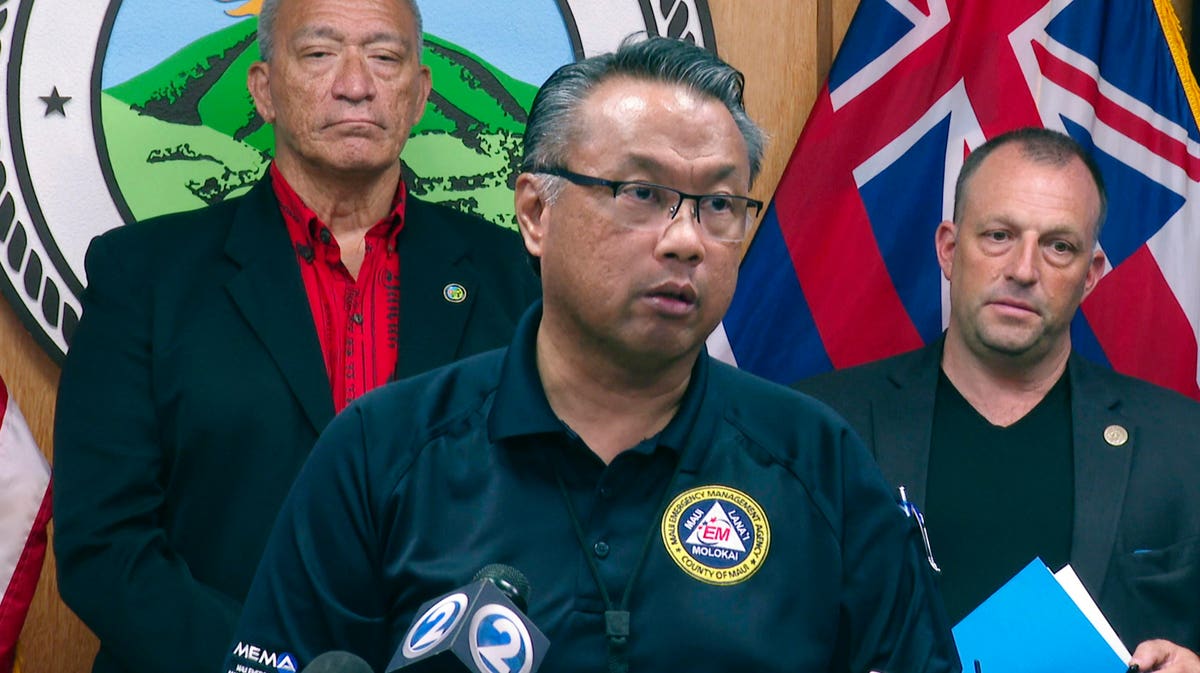The aftermath of the deadly and destructive wildfires on Maui is following a script that many corporate executives have faced when trying to recover from a crisis at their organizations.
The predictable nature of the pattern, however, does not make the images and news from the Hawaiian island any less riveting, gut-wrenching—or instructive. Indeed, business leaders should consider updating their company’s crisis recovery plans to account for the following possibilities that have become a reality in Maui.
Resignation
It is not unusual for someone who might have been responsible in some way or a poorly managed crisis to step down from their position.
Herman Andaya, the Maui Emergency Management Agency administrator, resigned last night, citing health reasons.
“Given the gravity of the crisis we are facing, my team and I will be placing someone in this key position as quickly as possible, and I look forward to making that announcement soon,” Maui County Mayor Richard Bissen said.
Andaya made headlines the day before at a press conference when he said he did not regret activating the island’s emergency notification sirens.
Criticism
Business leaders should not be surprised when faced with criticism or outrage over the way an emergency, scandal or disaster was handled.
The decision not to use sirens, “coupled with water shortages that hampered firefighters and an escape route clogged with vehicles that were overrun by flames, has brought intense criticism from many residents following the deadliest wildfire in the U.S. in more than a century,” the Associated Press reported.
“The lack of sirens has emerged as a potential misstep. The Associated Press reported it was part of a series of communication issues that added to the chaos. Hawaii has what it touts as the largest system of outdoor alert sirens in the world,” according to the news organization.
Damage Assessment
It’s essential to determine as quickly as possible the nature and extent of the damages caused by a crisis so that appropriate steps can be taken to recover from it as soon as possible.
“The fire caused billions of dollars in damage and burned nearly 3,000 structures, state officials have said. It created an immediate housing shortage around Lahaina and raised concerns about long-term displacement,” the Washington Post reported
“The fire also damaged or destroyed some of Lahaina’s historic landmarks, many of which were relics from the era of missionaries and sailors. The town is a sacred place for Native Hawaiians and was the capital of the Hawaiian Kingdom for the first half of the 19th century.
“The burning probably left behind toxins that could have long-term environmental effects on the state’s waters, corals, plants and wildlife, said officials, who closed public access to Lahaina,” according to the newspaper/
Resources
Depending on the nature and extent of a crisis, it may be necessary to rely on outside assistance to help those affected by it.
“The Federal Emergency Management Agency encouraged survivors of the Maui wildfires on Monday to register with the government as soon as possible to receive a range of assistance, including an immediate payment of $700 to cover food and water,” according to the New York Times.
“The agency also said it is providing temporary housing in hotels and motels for survivors. And the Small Business Administration said it can provide a low-interest loan of up to $500,000 to homeowners for repairs and up to $2 million to businesses that suffered damage,” the newspaper reported.
Investigation
Who, how, and when a crisis is investigated can be just as important as the results of the inquiry.
State Attorney General Anne Lopez said her office will hire a third-party private organization to conduct an independent investigation of the Lahaina wildfire, according to Hawaii News Now.
“The organization will assess the performance of agencies in preparing and responding to the wildfire that devastated Lahaina and other blazes that also tore through Maui.
“The hiring of the independent organization with background in emergency management underscores the scale of the disaster and the mounting questions about government preparation for the wildfires, actions taken during the blaze, and the response.”
Lawsuits
Legal actions against those who may be responsible for a crisis are not unusual.
Several lawsuits have already been filed against Hawaiian Electric because of the wildfires, according to KITV4.
“The lawsuits accuse the electric company of such things as negligence resulting in wrongful death, severe personal injury, property damage and loss,” the television station said.
What’s Next
Business leaders should pay close attention to how the Maui wildfire crisis continues to unfold for important lessons on the best practices for responding to, managing, and recovering from a crisis.
Read the full article here





